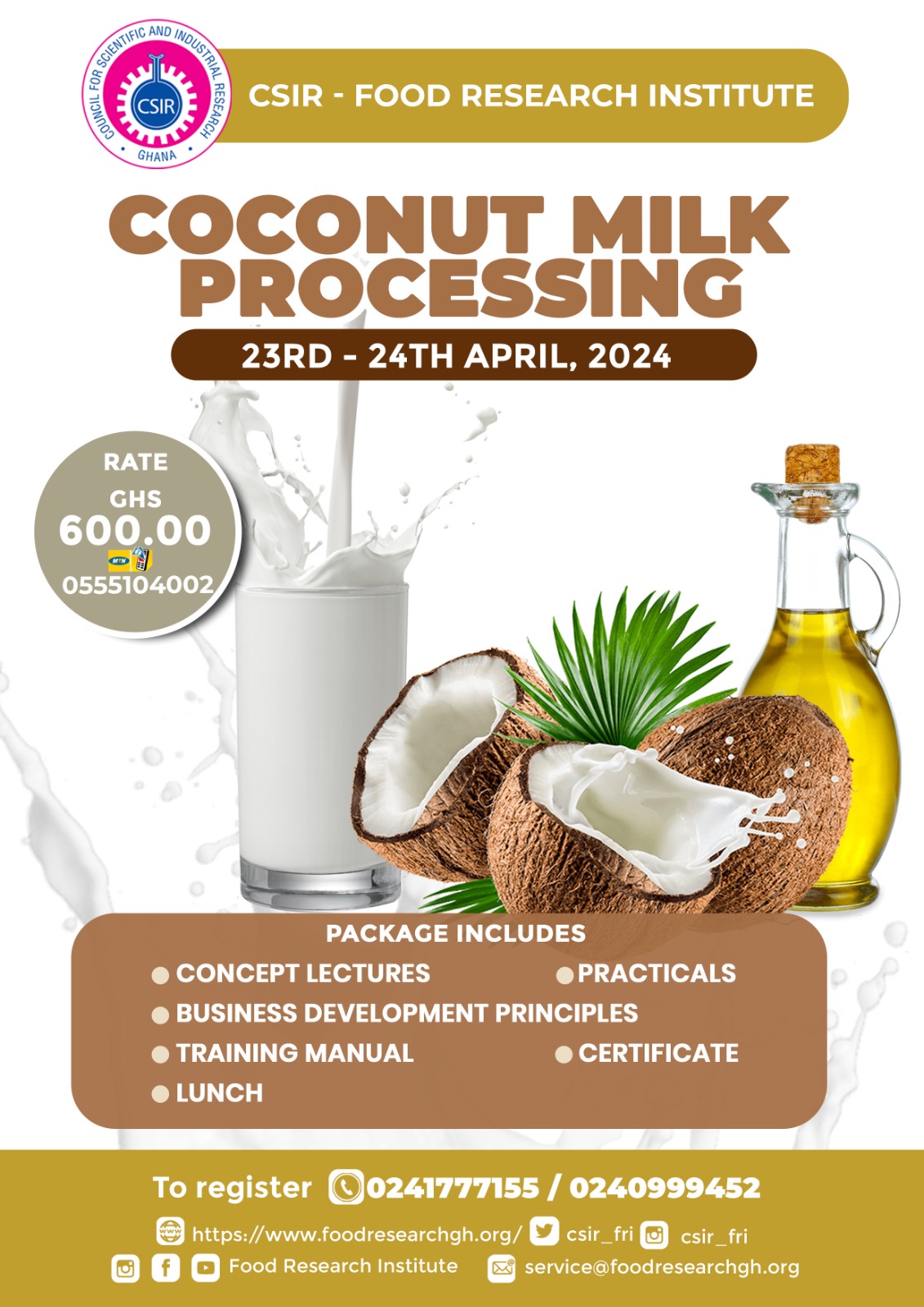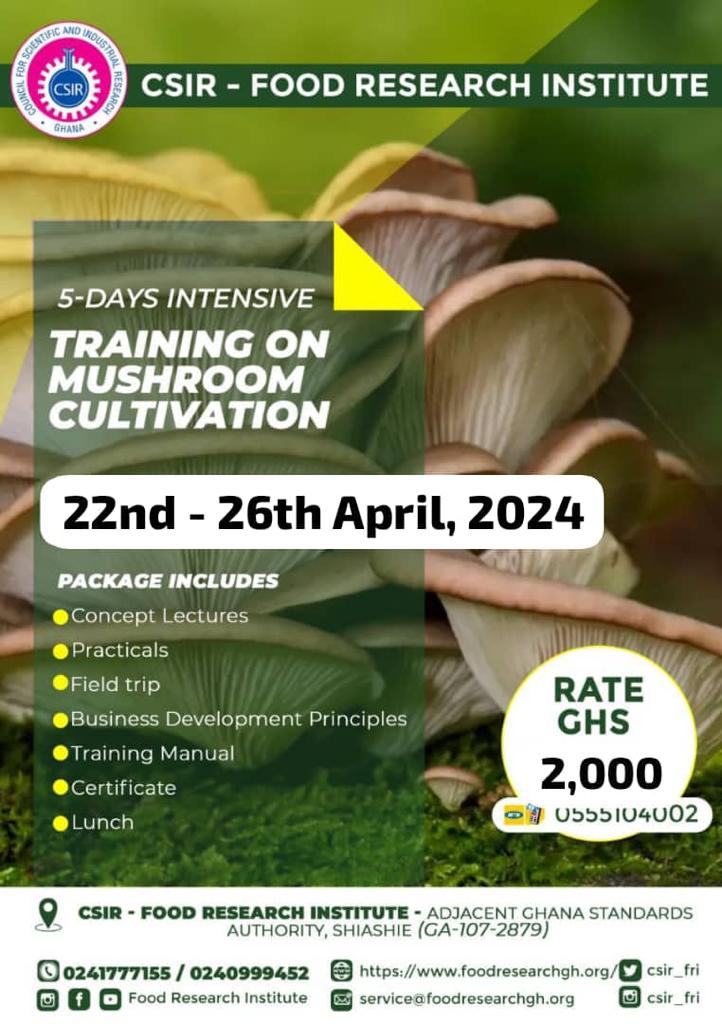The CSIR-Food Research Institute is organizing a 2-day training on coconut milk processing.



The 2-day food fair will make provisions for 70 exhibitors and 20 food vendors along the food value chain. The objective of the fair is to build long-term partnerships that will give a structure for continual information and technology transfer among public and commercial actors. The 70 exhibitors would include food industry players, start-up enterprises and entrepreneurs.
The fair will also include food from around world showcase and an innovation challenge
Get ready for a tantalizing adventure as we present the "Global Food Showcase," an exceptional event held as part of the CSIR-Food Research World Food Celebrations. These gathering aims to unite embassies and high commissions in Ghana fora vibrant showcase of diverse world cuisines, fostering cultural exchange, and propelling international collaboration in the realm of food research. The event brings together local and international food vendors, as well as community members, to share their love of food and culture. The central goal is to provide a platform where Diplomatic missions, Embassies, and High Commissions can celebrate their cultural heritage through the art of cuisine. Simultaneously, the event will underscore the significance of food research and innovation in addressing global food challenges.
The second edition of our newsletter is out, and we are excited to share it with you. Please use the link below to download it.
The Council for Scientific and Industrial Research-Food Research Institute (CSIR-FRI), in collaboration with Sheffield University and Gold Coast Sustainability and Governance Institute (GCSGI) organized an event at the CSIR-FRI on Thursday, 29th April 2021. The theme for the event was, “The Triple Bottom sustainability analysis on the circular economy of the Agricultural food value chain in Ghana”. The objective of the workshop was to launch the final report and policy brief of the project. There were 30 in-house participants and 17 online participants. In attendance was the Director-General of the CSIR, Prof. Victor Agyeman, the Acting Director of CSIR-Food Research Institute Prof. Charles Tortoe, and the immediate past Director of CSIR-FRI Prof. (Mrs) Mary Obodai, who was the lead of the project at CSIR-Food Research Institute. The project aimed to research into existing circular economy models, ways of cutting down on waste generation in the system and how beneficial it is socially, environmentally and economically. It was an insightful event and participants found the deliberations very fruitful.
Please click on the links below to read more about the report and the policy brief.
Food Research Institute is located Adjacent to Ghana Standards Authority, Near Gulf House, Tetteh Quarshie Interchange, Accra, Ghana. We are open to the general public from Monday to Friday 7:30am - 5:00pm, excluding holidays. If you need any additional information or have a question, please contact us on 0302-962068/+233-243302980 or email us at info@foodresearchgh.org or director@foodresearchgh.org.